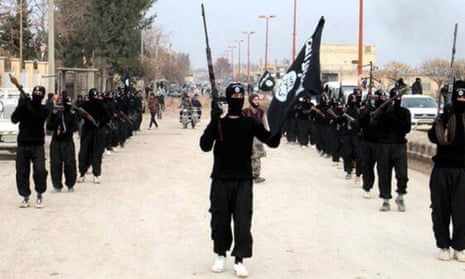The government has launched a Twitter account to specifically counter social media propaganda by Islamic State.
UK Against Isil, which was launched on Thursday by the Foreign Office, aims to provide “updates on the UK government’s ongoing work to defeat Isil [Isis]”.Among the account’s first four tweets was a promotional video for the UK’s role in combating Isis. “To defeat Isil the UK is playing a leading role in the global coalition,” it said.
What is the UK doing to dismantle and destroy #ISIL? pic.twitter.com/1dCpbI2BBU
— UK Against ISIL (@UKAgainstISIL) August 28, 2015
“We are militarily removing territory from Isil. We are cutting off Isil finances, reducing the number of fighters travelling to join Isil and providing humanitarian aid.
“To protect Britons at home we have disrupted Isil-linked terror plots, stopped people wanting to do harm from reaching the UK, worked with the internet industry to remove extremist propaganda and arrested 203 people for Syria-related terror offences.”
The account also retweeted a message from Frank Baker, the British ambassador to Iraq, who expressed his condolences on the death of two Iraqi army generals killed in a suicide bombing by Isis on Thursday.
A foreign office spokesman said the UK was playing an integral part in the coalition’s continued efforts to defeat Isis on all fronts. “Our new twitter account @UKAgainstISIL has been created to inform and engage the UK public on what action the UK government and its partners in the Global Coalition are taking to defeat this brutal terrorist group.”
Charlie Winter, a senior researcher at the Quilliam Foundation, a counter-extremism thinktank, said he thought the account’s aim would be to publicise the government’s position on events in Iraq and Syria, and not to dissuade those on the cusp of joining Isis.
“The government is very well aware of the fact that it doesn’t have the ability to say things that will resonate with extremist islamists,” he said.
Winter speculated that the account could have been established in response to a memo from the US under-secretary for public diplomacy and public affairs, Richard Stengel, leaked to the New York Times in June, in which he expressed concerns that the coalition’s narrative was being “trumped” by that of Isis.
“We are reactive – we think about ‘counter-narratives,’ not ‘our narrative’,” Stengel wrote. He proposed the creation of a “full-time coalition communications hub”, which would “do daily and weekly messaging around coalition activities and counter Isil”.
A total of 700 Britons have travelled to territory controlled by Isis in Syria and Iraq, and the terror group is heavily reliant on social media to attract new recruits.
Speaking in June, two of Google’s top executives – legal chief David Drummond and policy director Victoria Grand – issued a call to arms against Isis, arguing that the terror group had engineered a “viral moment” on social networks with propaganda and beheading videos that needs to be challenged.
In December 2013 the US state department launched its “Think Again Turn Away” Twitter account, which claims to tell “some truths about terrorism” and tweets counter-messaging material, addressing prominent jihadi accounts.
Rita Katz, director of the SITE Intelligence Group, wrote in Time magazine that the account was “not only ineffective, but also provides jihadis with a stage to voice their arguments, regularly engaging in petty disputes with fighters and supporters of groups like IS, al-Qaida and al-Shabaab, and arguing over who has killed more people while exchanging sarcastic quips”.
UK forces have been carrying out air strikes against Isis in Iraq, but MPs have not approved involvement in raids on the group’s Syrian bases.
Speculation has been growing that David Cameron, the UK prime minister, could hold a vote on extending military involvement when parliament returns from its summer break.

Comments (…)
Sign in or create your Guardian account to join the discussion